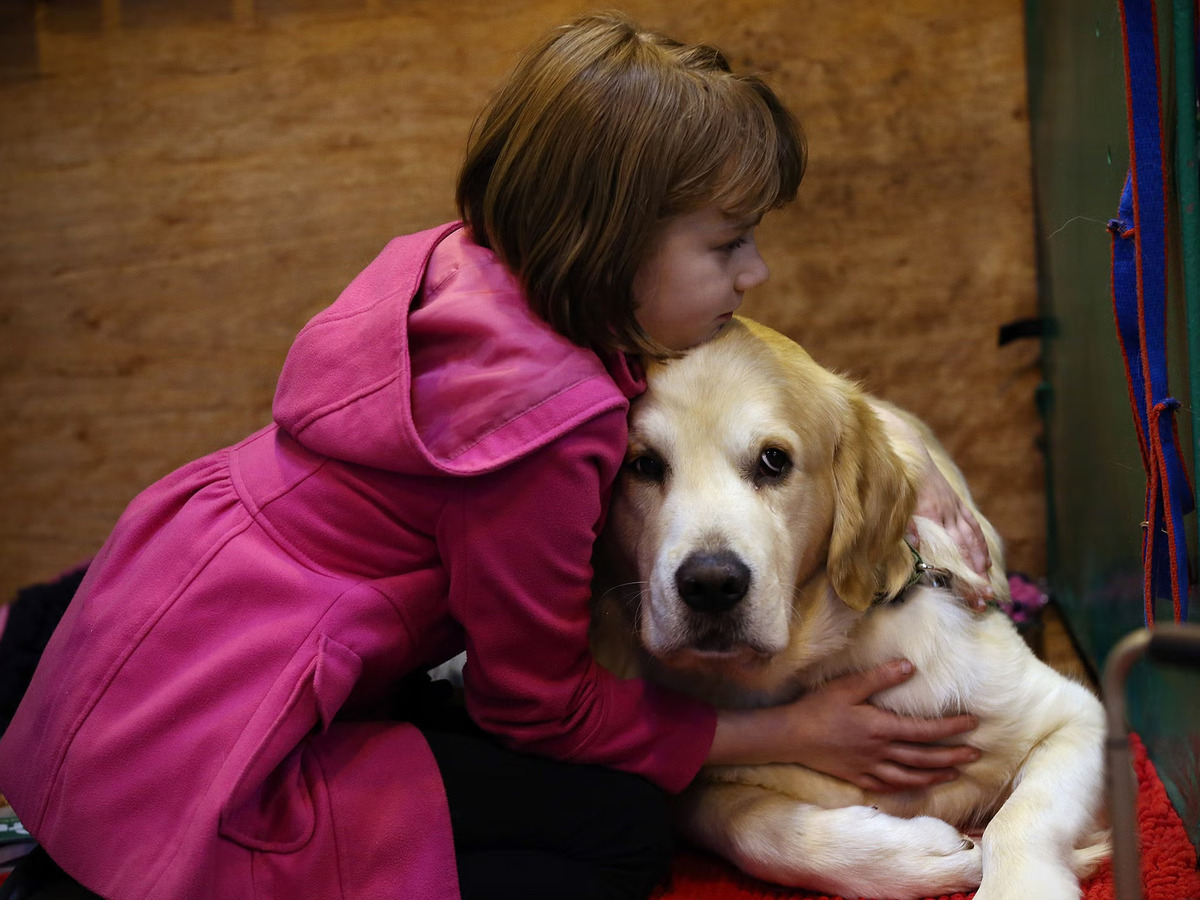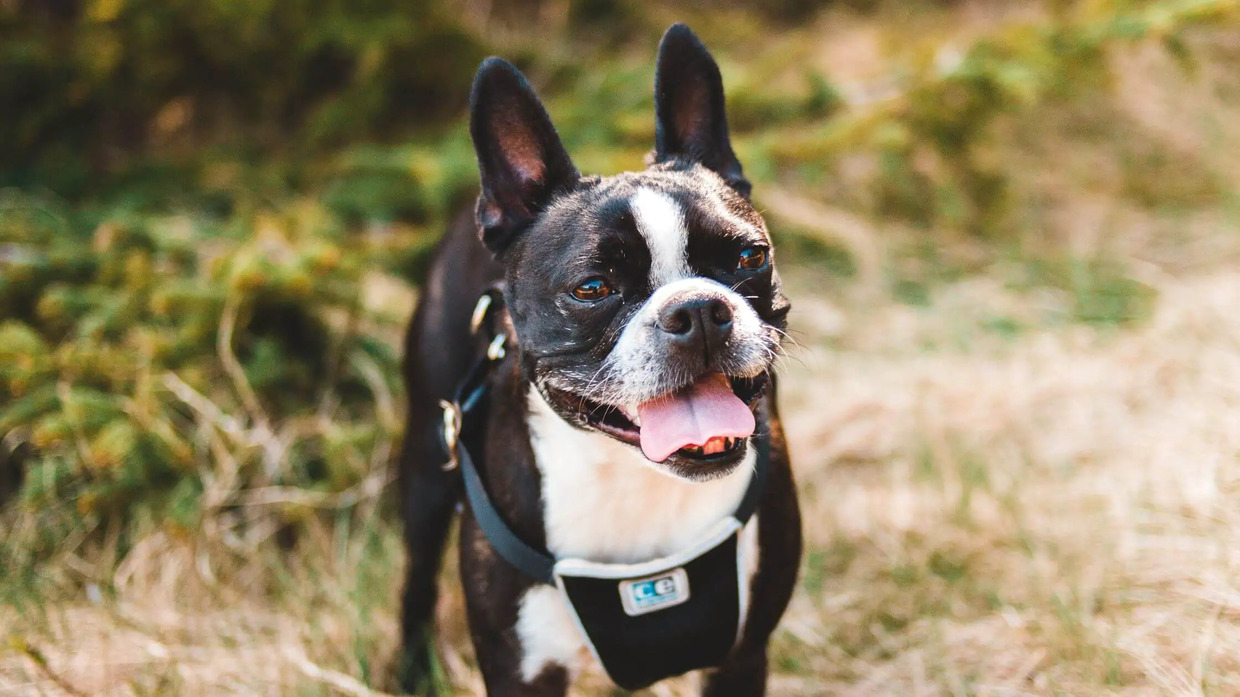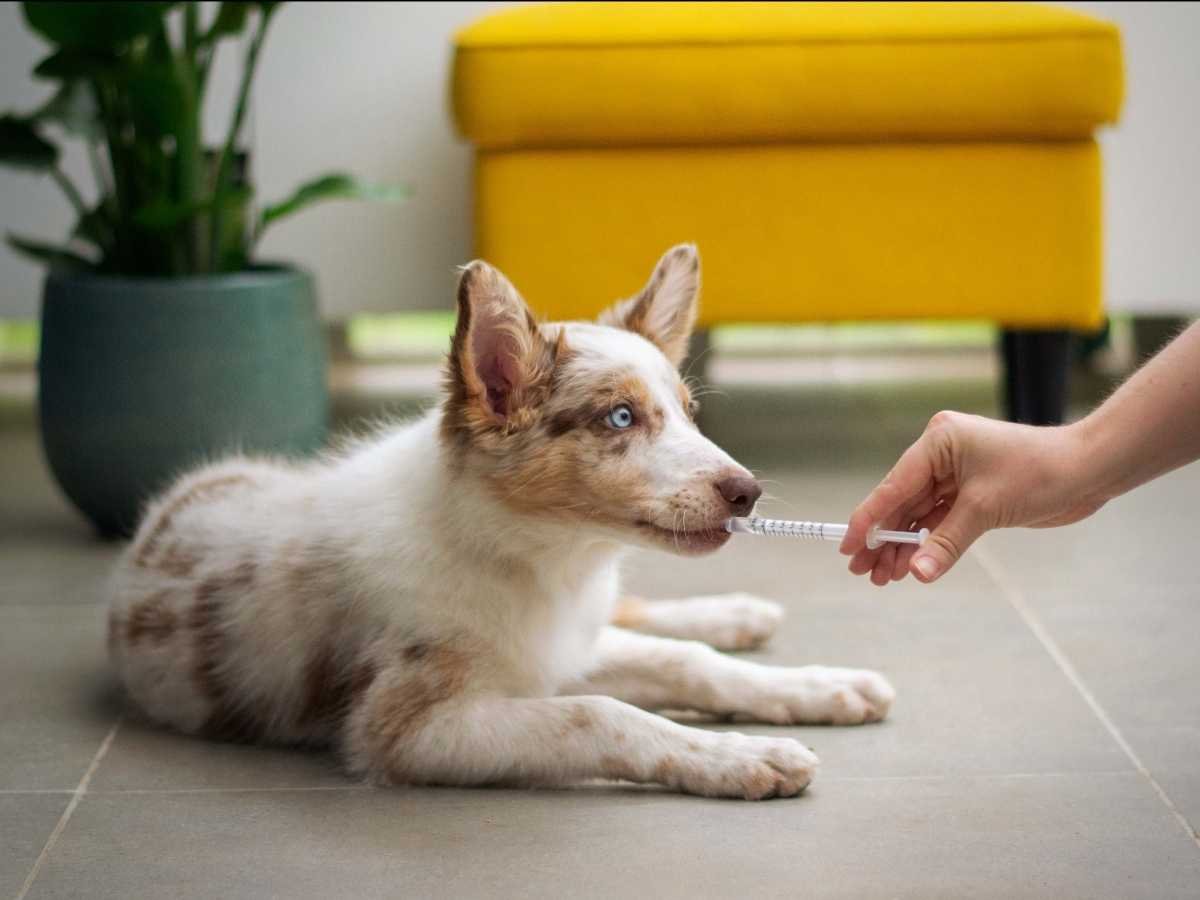Home>Health & Wellness>Common Health Issues>Why Am I Allergic To Allergy-Friendly Dogs


Common Health Issues
Why Am I Allergic To Allergy-Friendly Dogs
Published: January 25, 2024
Discover why some people are allergic to so-called allergy-friendly dogs and how to manage this common health issue effectively. Learn more about common health issues related to pet allergies.
(Many of the links in this article redirect to a specific reviewed product. Your purchase of these products through affiliate links helps to generate commission for Pawsomeoldies.com, at no extra cost. Learn more)
Table of Contents
Introduction
Allergies are a common health concern that affects millions of people worldwide. While allergies can be triggered by various factors, including pollen, dust, and certain foods, pet allergies are particularly prevalent. Many individuals who love dogs may find themselves in a predicament when their allergies prevent them from enjoying the companionship of a furry friend. However, there is a glimmer of hope for allergy sufferers in the form of allergy-friendly dog breeds.
In this article, we will delve into the fascinating world of allergy-friendly dogs, exploring the breeds that are known to be more compatible with individuals prone to allergies. We will also uncover the underlying causes of allergic reactions to these dogs and provide valuable insights into managing allergies effectively.
For those who have longed for the joy of having a canine companion but have been deterred by allergies, this article aims to shed light on the possibilities of finding a furry friend that can coexist harmoniously with allergy sensitivities. Let's embark on this enlightening journey to discover the world of allergy-friendly dogs and how they can bring joy and companionship to those who have previously felt excluded from the wonderful world of canine companionship.
Read more: If I Am Starting My Dog On Amitriptyline For Allergies, How Long Does She Have To Be Off Pred?
Understanding Allergies
Allergies are the body's immune system's overreaction to substances that are typically harmless to most people. When an individual with allergies comes into contact with these triggers, their immune system perceives them as a threat and responds by producing antibodies to defend against the perceived threat. This immune response leads to the release of histamines and other chemicals, causing the symptoms commonly associated with allergies.
In the context of pet allergies, the allergen that triggers the immune response is often a protein found in the animal's skin cells, urine, or saliva. When a person with pet allergies comes into contact with these allergens, they may experience a range of symptoms, including sneezing, runny or stuffy nose, itchy or watery eyes, and in some cases, skin rashes or hives.
It's important to note that not all dog breeds produce the same allergic reactions in individuals. Some breeds are considered "hypoallergenic," meaning they are less likely to trigger allergic reactions in sensitive individuals. However, it's essential to understand that no dog breed is entirely hypoallergenic, and individual responses can vary.
Furthermore, allergies to pet dander can be compounded by other allergens present in the environment, such as pollen, dust mites, or mold. This means that individuals with pet allergies may experience heightened symptoms in environments where multiple allergens are present.
Understanding allergies involves recognizing the complex interplay between genetic predisposition, environmental factors, and individual immune responses. While allergies can be managed through various means, including medication and environmental control, finding ways to coexist with allergy-friendly dogs can significantly improve the quality of life for individuals who long to experience the joys of canine companionship without compromising their health.
By gaining a deeper understanding of the underlying mechanisms of allergies and the specific triggers associated with pet allergies, individuals can make informed decisions about selecting allergy-friendly dog breeds and implementing strategies to minimize allergic reactions, ultimately paving the way for a harmonious coexistence between humans and their furry companions.
Allergy-Friendly Dog Breeds
When it comes to finding a canine companion that is more compatible with individuals prone to allergies, certain dog breeds have gained a reputation for being "allergy-friendly." While no dog breed can guarantee a completely allergy-free experience, these breeds are known to produce fewer allergens or shed less dander, making them a more suitable choice for allergy sufferers.
-
Poodle: Poodles are renowned for their intelligence, elegance, and curly, hypoallergenic coat. Their single-layered, curly fur minimizes shedding, reducing the spread of dander in the environment. This characteristic makes Poodles a popular choice for individuals with allergies.
-
Bichon Frise: With their soft, curly coat and playful demeanor, Bichon Frises are considered hypoallergenic due to their minimal shedding and low dander production. Their cheerful disposition and affectionate nature make them an excellent choice for allergy-sensitive individuals seeking a small, lively companion.
-
Maltese: Known for their luxurious, silky white coat, Maltese dogs are often favored by individuals with allergies. Their long, flowing hair lacks an undercoat, which reduces shedding and minimizes the spread of allergens in the home environment.
-
Portuguese Water Dog: As the name suggests, these dogs have a water-resistant coat that is both curly and low-shedding. Their unique coat composition makes them a suitable choice for individuals with allergies, as it reduces the likelihood of triggering allergic reactions.
-
Schnauzer: Schnauzers come in three sizes—giant, standard, and miniature—and are recognized for their distinctive beards and eyebrows. Their wiry, non-shedding coat makes them a popular choice for allergy sufferers seeking a loyal and protective companion.
-
Shih Tzu: Shih Tzus boast a long, flowing coat that requires regular grooming but sheds minimally. Their friendly and outgoing nature, combined with their low dander production, makes them a beloved choice for individuals with allergies.
-
Yorkshire Terrier: Affectionately known as "Yorkies," these small, energetic dogs have a beautiful, hypoallergenic coat that requires regular maintenance. Their minimal shedding and compatibility with allergy-sensitive individuals have made them a popular choice for those seeking a compact and lively companion.
These allergy-friendly dog breeds offer hope and companionship to individuals who have longed for the joy of having a canine friend without the burden of severe allergic reactions. While no dog can guarantee an entirely allergy-free experience, the characteristics of these breeds make them more compatible with allergy-sensitive individuals, allowing for the possibility of a harmonious and fulfilling relationship between humans and their furry companions.
Causes of Allergic Reactions to Allergy-Friendly Dogs
Despite being labeled as "hypoallergenic" or "allergy-friendly," certain dog breeds can still trigger allergic reactions in sensitive individuals. Understanding the underlying causes of these allergic responses is crucial for effectively managing and mitigating potential health concerns. The primary contributors to allergic reactions to allergy-friendly dogs include:
-
Canine Allergens: While some dog breeds are known for producing fewer allergens or shedding less dander, no breed is entirely hypoallergenic. All dogs produce proteins that can trigger allergic reactions in susceptible individuals. These allergens are found in the dog's dander, saliva, and urine. When these particles become airborne or come into direct contact with a person's skin, eyes, or respiratory system, they can elicit an immune response, leading to allergy symptoms.
-
Pet Dander: The shedding of skin flakes, commonly known as dander, is a significant source of allergens in dogs. Even allergy-friendly breeds can produce dander, albeit in smaller quantities. When these microscopic skin particles become airborne or settle on surfaces within the home, they can provoke allergic reactions in sensitive individuals. Additionally, pet dander can adhere to clothing, furniture, and carpets, prolonging exposure and exacerbating allergic symptoms.
-
Saliva Proteins: Dogs naturally groom themselves by licking their fur, leading to the transfer of saliva proteins onto their coat. When allergy-sensitive individuals come into contact with these proteins through petting or handling the dog, it can result in allergic reactions. While some breeds may produce less saliva or have coat textures that minimize the spread of saliva proteins, the potential for allergic responses still exists.
-
Urine Proteins: Another common source of allergens is found in a dog's urine. When a dog urinates, proteins present in the urine can become airborne or adhere to surfaces, posing a potential allergen exposure risk. Even allergy-friendly breeds can excrete urine proteins, albeit in smaller amounts, which can still trigger allergic reactions in susceptible individuals.
-
Environmental Factors: In addition to the allergens produced by dogs, environmental factors can exacerbate allergic reactions. Pollen, dust mites, mold, and other airborne allergens can compound the effects of pet allergens, leading to heightened allergy symptoms in individuals with pet allergies.
Understanding these causes of allergic reactions to allergy-friendly dogs empowers individuals to take proactive measures to minimize allergen exposure and manage their symptoms effectively. By implementing strategies such as regular grooming, cleaning, and creating pet-free zones within the home, individuals can create a more allergy-friendly environment, allowing for a harmonious coexistence with their beloved canine companions.
Managing Allergies to Allergy-Friendly Dogs
Effectively managing allergies to allergy-friendly dogs is essential for individuals seeking to experience the joys of canine companionship without compromising their health. While complete elimination of allergens is not feasible, implementing practical strategies can significantly reduce allergen exposure and alleviate allergy symptoms. Here are valuable tips for managing allergies to allergy-friendly dogs:
-
Regular Grooming: Maintaining a consistent grooming routine for allergy-friendly dogs is crucial for minimizing the spread of dander and saliva proteins. Regular brushing and bathing can help reduce the accumulation of allergens on the dog's coat, thereby decreasing the likelihood of triggering allergic reactions in sensitive individuals.
-
Allergen-Reducing Shampoos: Utilizing allergen-reducing shampoos designed specifically for allergy-friendly dogs can aid in mitigating the presence of allergens on the dog's skin and coat. These specialized shampoos can help break down and remove allergens, contributing to a more allergy-friendly environment for individuals prone to allergies.
-
Designated Pet-Free Zones: Establishing designated pet-free zones within the home, such as bedrooms or specific furniture areas, can provide allergy-sensitive individuals with allergen-free spaces to retreat to. By minimizing the presence of allergens in these designated areas, individuals can seek relief from allergy symptoms while still enjoying the companionship of their allergy-friendly dogs in other areas of the home.
-
Frequent Cleaning: Regular cleaning of the home environment, including vacuuming carpets, dusting surfaces, and washing pet bedding, can help reduce the accumulation of pet dander and other allergens. Using high-efficiency particulate air (HEPA) filters in vacuum cleaners and air purifiers can further aid in capturing and removing airborne allergens, promoting a cleaner and more allergy-friendly living space.
-
Consultation with Allergists: Seeking guidance from allergists or immunologists can provide individuals with personalized strategies for managing their specific allergy symptoms. Allergists can offer insights into medication options, allergen immunotherapy, and environmental control measures tailored to the individual's unique allergy profile, enhancing their ability to coexist with allergy-friendly dogs.
-
Regular Veterinary Care: Ensuring that allergy-friendly dogs receive regular veterinary care, including vaccinations, parasite control, and overall health assessments, is essential for maintaining their well-being. A healthy dog is less likely to experience skin issues that can exacerbate allergen production, contributing to a more allergy-friendly environment for their human companions.
By incorporating these proactive measures into their daily routines, individuals can create a more allergy-friendly environment and effectively manage their allergies to allergy-friendly dogs. These strategies empower individuals to experience the love and companionship of their canine friends while minimizing the impact of allergens on their overall well-being.
Conclusion
In conclusion, the journey to understanding and navigating allergies to allergy-friendly dogs has illuminated the possibilities for individuals who have longed for the companionship of a canine friend without the burden of severe allergic reactions. While the concept of hypoallergenic dog breeds offers hope, it is essential to recognize that no dog breed can guarantee an entirely allergy-free experience. However, the characteristics of certain allergy-friendly dog breeds, coupled with proactive management strategies, can pave the way for a harmonious coexistence between humans and their furry companions.
The exploration of allergy-friendly dog breeds, including the Poodle, Bichon Frise, Maltese, Portuguese Water Dog, Schnauzer, Shih Tzu, and Yorkshire Terrier, has shed light on the potential for individuals with allergies to find compatible canine companions. These breeds, known for their minimal shedding and low dander production, offer a glimmer of hope to allergy-sensitive individuals seeking the joy and comfort of a furry friend.
Understanding the causes of allergic reactions to allergy-friendly dogs has underscored the complex interplay of canine allergens, pet dander, saliva proteins, urine proteins, and environmental factors. By acknowledging these contributors to allergic responses, individuals can take proactive measures to minimize allergen exposure and create a more allergy-friendly living environment. From regular grooming and allergen-reducing shampoos to designated pet-free zones and frequent cleaning, the management of allergies to allergy-friendly dogs empowers individuals to enjoy the love and companionship of their canine friends while mitigating the impact of allergens on their well-being.
Ultimately, the journey to coexisting with allergy-friendly dogs is a testament to the resilience and adaptability of individuals who refuse to let allergies hinder their desire for companionship and connection. By embracing the possibilities offered by allergy-friendly dog breeds and implementing practical management strategies, individuals can embark on a fulfilling and enriching journey alongside their beloved canine companions. The bond between humans and dogs transcends the challenges posed by allergies, fostering a relationship built on love, understanding, and the unwavering joy that comes from the companionship of a loyal and cherished furry friend.














